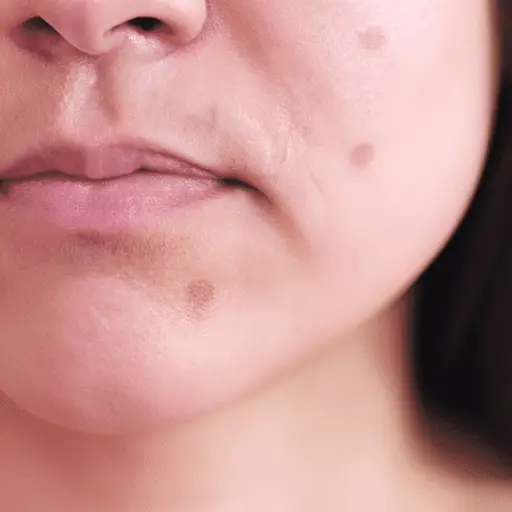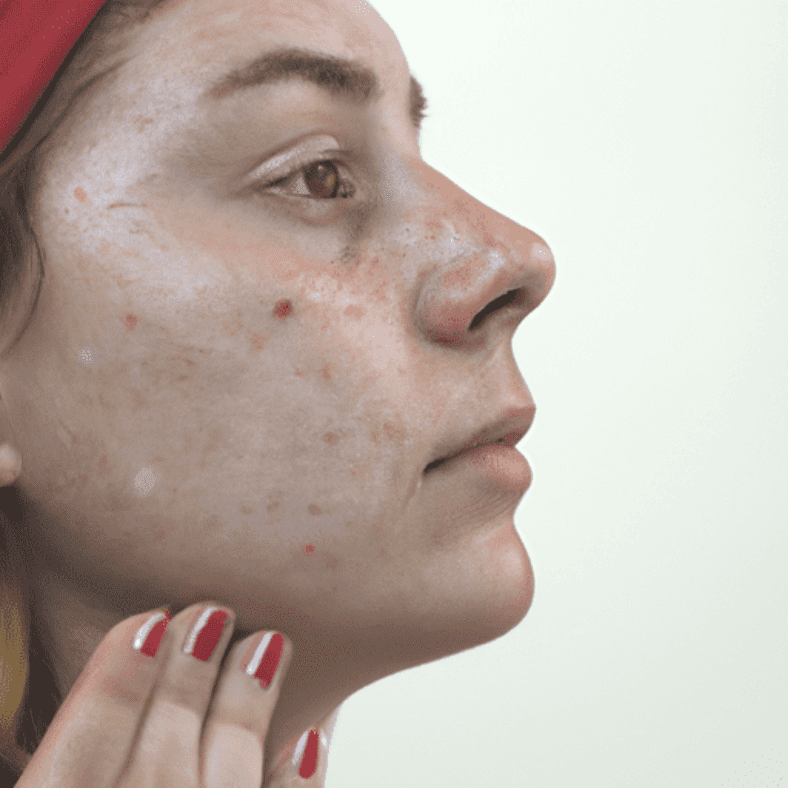-
Table of Contents
- The Link Between Acne and Hormones
- Key Takeaways
- Introduction: Unveiling the Connection Between Acne and Hormones
- The Role of Hormones in Acne Development
- Hormonal Acne: Identification and Treatment
- Preventing Hormonal Acne: The Role of a Skincare Routine
- FAQ Section
- What causes hormonal acne?
- Who is most likely to get hormonal acne?
- How is hormonal acne treated?
- Can diet affect hormonal acne?
- Can hormonal acne be prevented?
- Conclusion: Understanding the Acne-Hormone Connection
- Further Analysis
The Link Between Acne and Hormones

[youtubomatic_search]
Key Takeaways
- Acne is a common skin condition that is often linked to hormonal changes in the body.
- Hormonal acne typically appears in adults aged 20 to 25, but can occur at any age.
- Fluctuations in hormones, particularly androgens, can lead to increased oil production and clogged pores, resulting in acne.
- Effective treatment for hormonal acne often involves a combination of topical treatments, oral medications, and lifestyle changes.
- Understanding the link between hormones and acne can help individuals develop a more effective skincare routine.
Introduction: Unveiling the Connection Between Acne and Hormones
Acne, a common skin condition affecting millions worldwide, is often associated with hormonal changes in the body. While it is most prevalent during adolescence, it can occur at any age, with hormonal acne becoming increasingly common in adults. This article delves into the intricate relationship between acne and hormones, shedding light on the causes, treatments, and preventative measures for hormonal acne.
The Role of Hormones in Acne Development
Acne develops when the pores of the skin become clogged with oil and dead skin cells. Hormones play a significant role in this process, particularly androgens like testosterone. These hormones can stimulate the sebaceous glands to produce more oil, leading to clogged pores and the formation of acne.
According to a study published in the Journal of Investigative Dermatology, hormonal fluctuations that occur during the menstrual cycle, pregnancy, and menopause can also trigger acne outbreaks. The study found that 63% of acne-prone women experience premenstrual flare-ups, largely due to increased oil production caused by hormonal changes.
Hormonal Acne: Identification and Treatment
Hormonal acne typically manifests as deep and painful cysts, often appearing on the lower face and jawline. However, it can also occur on the back and chest. Dermatologists can diagnose hormonal acne by examining the skin and considering factors such as age, menstrual cycle, and other symptoms of hormonal imbalance.
Treatment for hormonal acne often involves a combination of topical treatments, oral medications, and lifestyle changes. Topical retinoids and antibiotics can help unclog pores and reduce inflammation, while oral contraceptives and anti-androgen drugs can help balance hormones. A study in the Journal of the American Academy of Dermatology found that a combination of oral contraceptives and anti-androgens was more effective in treating hormonal acne than either treatment alone.
Preventing Hormonal Acne: The Role of a Skincare Routine
While hormonal fluctuations are often unavoidable, maintaining a consistent skincare routine can help manage and prevent hormonal acne. This includes cleansing the skin twice daily, using non-comedogenic products, and exfoliating regularly to remove dead skin cells and prevent clogged pores.
Additionally, lifestyle changes such as a balanced diet, regular exercise, and stress management can also help regulate hormones and reduce the likelihood of acne outbreaks. A study in the Journal of the Academy of Nutrition and Dietetics found that a diet high in fruits, vegetables, whole grains, and lean protein can help balance hormones and promote healthy skin.
FAQ Section
What causes hormonal acne?
Hormonal acne is primarily caused by fluctuations in hormones, particularly androgens, which can stimulate the sebaceous glands to produce more oil, leading to clogged pores and acne.
Who is most likely to get hormonal acne?
While hormonal acne can occur at any age, it is most common in adults aged 20 to 25. Women are also more likely to experience hormonal acne due to hormonal changes during the menstrual cycle, pregnancy, and menopause.
How is hormonal acne treated?
Treatment for hormonal acne often involves a combination of topical treatments, oral medications, and lifestyle changes. This can include topical retinoids and antibiotics, oral contraceptives and anti-androgen drugs, and a consistent skincare routine.
Can diet affect hormonal acne?
Yes, a balanced diet can help regulate hormones and reduce the likelihood of acne outbreaks. Foods high in fruits, vegetables, whole grains, and lean protein are particularly beneficial for promoting healthy skin.
Can hormonal acne be prevented?
While hormonal fluctuations are often unavoidable, maintaining a consistent skincare routine and making certain lifestyle changes can help manage and prevent hormonal acne.
Conclusion: Understanding the Acne-Hormone Connection
The link between acne and hormones is complex, with hormonal fluctuations playing a significant role in the development of this common skin condition. Understanding this connection can help individuals develop a more effective skincare routine and make informed decisions about treatment options. While hormonal acne can be challenging to manage, a combination of topical treatments, oral medications, and lifestyle changes can help control outbreaks and promote healthier skin.
[youtubomatic_search]
Further Analysis
In conclusion, the key takeaways from this article are:
- Acne is often linked to hormonal changes in the body, with androgens playing a significant role in its development.
- Hormonal acne typically appears in adults aged 20 to 25, but can occur at any age.
- Effective treatment for hormonal acne often involves a combination of topical treatments, oral medications, and lifestyle changes.
- Maintaining a consistent skincare routine can help manage and prevent hormonal acne.
- Understanding the link between hormones and acne can help individuals develop a more effective skincare routine.

Leave a Reply